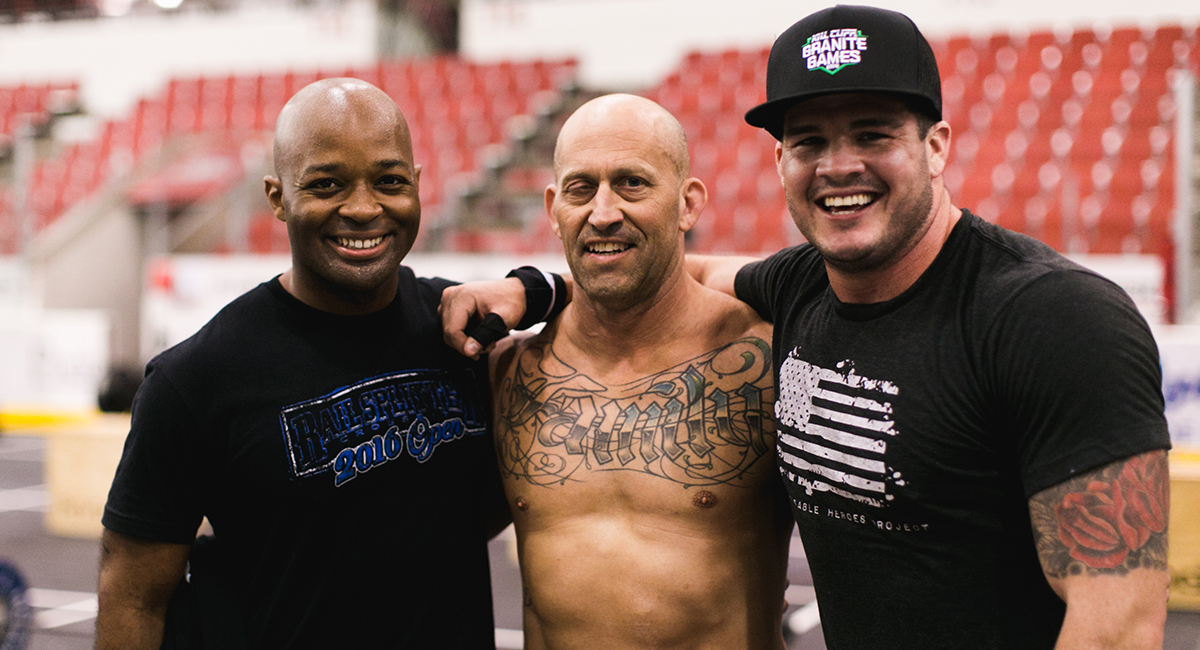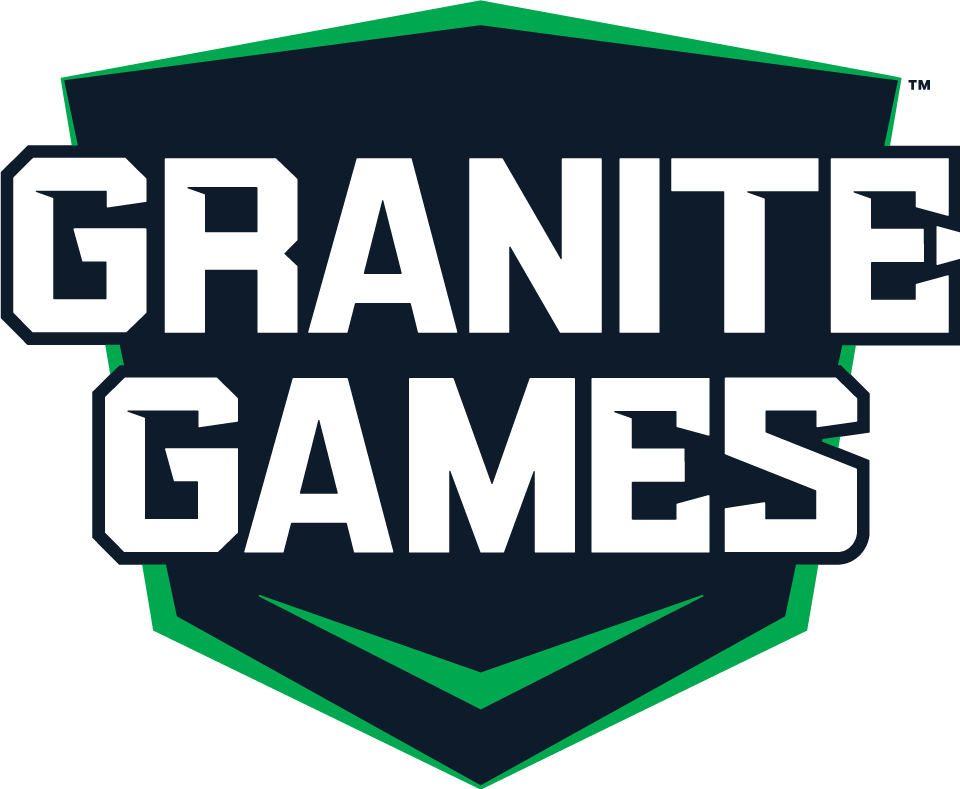We’re all fighting battles the outside world knows nothing about. For Chris Schmulbach, this is especially true. Chris, a member of Intermediate Team of 3 Rail Splitter Black at this year’s Kill Cliff Granite Games, has overcome more than your average athlete on his Road to Minnesota. Less than a year ago, Chris underwent major surgery to beat acoustic neuroma, a condition that has profoundly changed his life. Chris’ determination to find his way back through fitness is incredible to witness, and truly puts into perspective the daily struggles we all face in making the decision to prioritize our own health and fitness.

GG: You’ve got a pretty remarkable story to tell. Can you give us a little background on where it began?
Chris Schmulbach: What happened was around Christmas of 2014, I woke and noticed I had some tingling in my mouth. I just thought it was an infection or something. No big deal. So, I didn’t do anything about it. Then, heading into 2015, the sensation started progressing up the side of my face. I began to get some numbness and the tingling got worse.
Finally, in November 2015, I decided to go talk to a specialist. I went to my dentist first to make sure it wasn’t just an infected tooth or something. He took a look and recommended a neurologist—that freaked me out a little bit. My wife and I went in for the MRI around November 20th, and they called me that same day and told me I needed to go see somebody immediately. The tumor they found was 5 cm in diameter, which is very large. It was so large it was pushing against the brain stem and cutting off oxygen to my brain. That was another symptom I’d noticed, I was having a hard time breathing, gassing out really fast. Everything became just… really hard. And the headaches were really, really bad; migraines twice as bad as a regular migraine. It was indescribable.
GG: So clearly something had to be done. What happened?
CS: We finally went to Chicago and met with Dr. Leonetti and Dr. Anderson at Loyola. They’d done 1100 or so of these surgeries with no complications, so I was pumped about that. The tumor was behind my eye socket and pushing against my optical nerve and was also wrapped around my facial nerve. Actually, it’s still wrapped around my facial nerve—they couldn’t take it all out during the procedure for fear of paralyzing my face. We’re hoping it will die off.
So the doctors went in and got all but 9mm of the tumor out. Like I said, they didn’t want to cause paralysis of the face, so they left it alone. I came out of surgery ok and spent about 5-6 days in hospital, about 4 days more than I was supposed to, because my cornea was scratched during surgery. So I had to get that dealt with. I’m currently blind in my right eye from that scratch and I get dry eye real bad. I’ve also lost my hearing on the right side and have balance issues. There’s ringing in my ear all day long and that feeling of fullness in both ears. But we’re getting through that. Recovery is coming along; it’s been almost 7 months exactly since surgery.
GG: It certainly does seem to be coming along. You’ve actually competed 4 times since your tumor was removed? That seems like a lot. When did you start training again after surgery?
CS: Well, I stayed home about a week and a half. After 14 days, I was in the gym doing Crossover symmetry and just trying to move, to keep my body aware of physical activity, anything. Lying in bed was not an option for me. I lost 23 lbs. lying in the hospital for 7 days. I know that I have a long way to go. Having the support from my family and the Dancers has been huge in my recovery. I’m close with Sam and Jen Dancer. Sam guides me in the right direction, calling out things I can probably do and things I shouldn’t do. The goal is nothing crazy.
GG: I’m still wrapping my head around this 4-competition thing. When did you first compete again after surgery?
CS: My first comp after surgery was maybe toward the end of April. I remember it was still cold out. It was a partner competition that I completed with one of the members from my gym. We entered the scaled division; I wasn’t in condition for anything more than that. Anyway, we did it and wound up winning! Ever since then, I’ve been plugging away and trying to get some strength back. Just pushing as hard as I can to get back. It’s been a struggle because the strength isn’t there, but I can tell it’s coming. Beyond strength-building, I still have issues going upside down. Plus, jumping on a box is kind of hard with one eye, and as you can imagine, balance is iffy on occasion.
GG: Your drive to overcome this setback is incredible.
CS: The way I look at it, there’s two ways to go about this whole thing. One, you can sit back, do nothing and feel sorry for yourself. Or two, you can try to inspire people who are having a hard time. I have a lot of friends having a hard time with PTSD coming back from Afghan. I want to use what I have going on to try to help those guys, as well as others with major medical issues like mine. It can be done, I’ve proven that.
I want to raise awareness about this condition, too. One in 100,000 get this tumor. It’s very rare, not genetic. It can lie dormant for 15-20 years, growing slowly. You never even know you have it until one day you develop a symptom, like I did. I think we need to create more awareness about that. About acoustic neuroma. It’s not cancer, it’s benign, but it does a lot of damage. A lot of people have paralysis of the face, lose their hearing, have headaches for the rest of their life. We need to create a lot more awareness. Hopefully my story can get out there and encourage others to keep moving on, staying fit. If I wasn’t in shape I was in going into surgery, there’s no way I would have recovered as well as I did. I personally think CrossFit saved my life, recovery-wise. Even at 44, my body was pretty well-prepared for anything. I think it’s so important for people who think CrossFit is dangerous or not good for your body to understand that.
GG: So you and your team killed it at The Granite Games, finishing 46th of 88 teams. What’s next for you?
CS: I’m currently doing the Wodapalooza Qualifier. After week one, I’m sitting in 11th place. I’m not sure how I pulled that off! I did the Bear Complex and took 16th, and the overhead squat/double under workout and landed 12th. Those were pretty hard workouts for me. The complex was horrible. I did it 6 times, believe it or not. I knew I could do a certain weight, it was just a matter of figuring out my rest and getting my breath back.
GG: Well we definitely wish you luck with the rest of the qualifier! You must have a super strong support system to manage your recovery, owning and running a gym and training as you do.
CS: I absolutely do. My wife Kendra, she’s been there since day one. My mom, she drove me back and forth to Chicago for 2 months straight until I could drive myself to my doctor’s appointments. And the whole gym has been there for me like family. They’ve brought us food and done anything they could possibly do, even opening the gym for me. I’m pretty much the only coach here, I coach every class. We’ve got about 100 members, so we’re a small community, a small family. It does get taxing after a while. And Sam [Dancer] has been a huge help for me. He raised a lot of money for me before my surgery, and even just the talks and encouragement I get from him, that’s been huge. Even to this day, with all I have going on, I still call Sam. That’s definitely helped my recovery, having these people support and back me. It blows me away how they all come together. They don’t have to, but they do. That’s what I love about CrossFit and owning a gym. That’s what I love about it.

